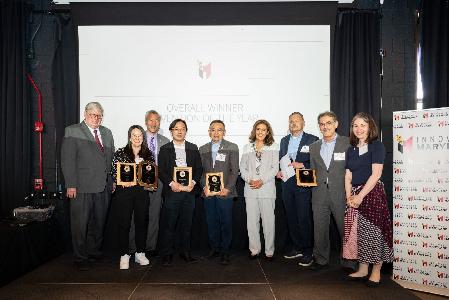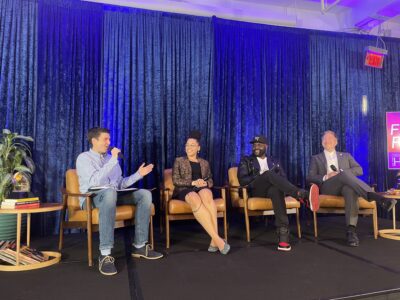A McLean, Virginia development company just took a huge step to decarbonize the local data center scene.
PowerHouse Data Centers, a division of American Real Estate Partners, officially joined the Infrastructure Masons (iMasons) Climate Accord. PowerHouse is one of 170 companies to join the agreement, which hopes to make data center design, operation and construction more transparent and sustainable.
The 170 companies will partner up to try to bring more sustainable and eco-friendly practices to the industry. Part of that, Kipfer said, involves trying to establish industry-wide sustainability standards, which are currently lacking. He’s also hoping that participating in the accord will mean setting more goals for the future and more open sharing of information among developers.
Luke Kipfer, VP of data center development and construction, told Technical.ly that the company has always made sustainability a high priority, so joining iMasons seemed like a natural move.
“The design and the operations, especially, have always been a little bit siloed between organizations, everyone thinks they’ve got the best design and the secret design and the best way to run things,” Kipfer said. “So there’s isn’t necessarily as much information sharing in those aspects of the industry.”
In particular, he said that data center developers can have more sustainable impacts through building design as well as materials (PowerHouse owns the land and builds data centers, but it doesn’t operate them). Currently, PowerHouse works to preserve trees on the land it purchases and uses steel with recycled materials and eco-friendly roofing material when possible. It also tries to minimize microplastics.
Additionally, Kipfer said PowerHouse partners with contractors on the data center sites that prioritize the environment, social and governance practices. Buildings are also certified by several institutes and organizations to increase transparency. With iMasons, he hopes to share some of these practices and learn from others.
“We’re all building roughly the same buildings, we’re operating in the same markets,” Kipfer said. “So, it makes a lot of sense to put our heads together and [help] to solve some of those same challenges, especially around sustainability.”
Join the conversation!
Find news, events, jobs and people who share your interests on Technical.ly's open community Slack

Is AI really something new — or just the next big technology platform?

Environmentally friendly plasma, an AI detector and a moving photon counter win UMD Invention Awards

This Week in Jobs: Get out there with 22 new job opportunities available to you!


